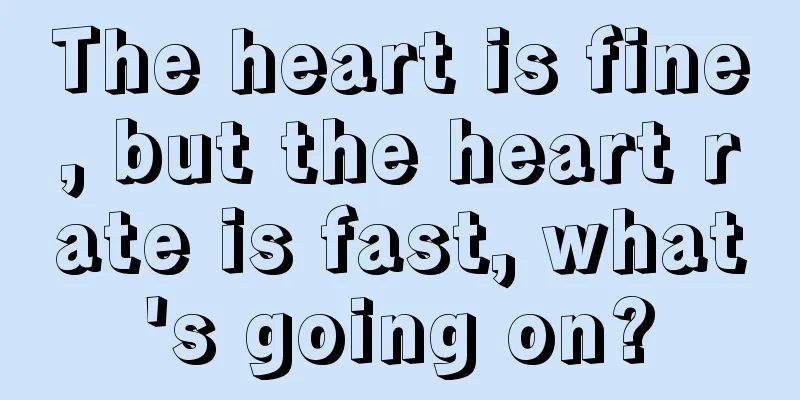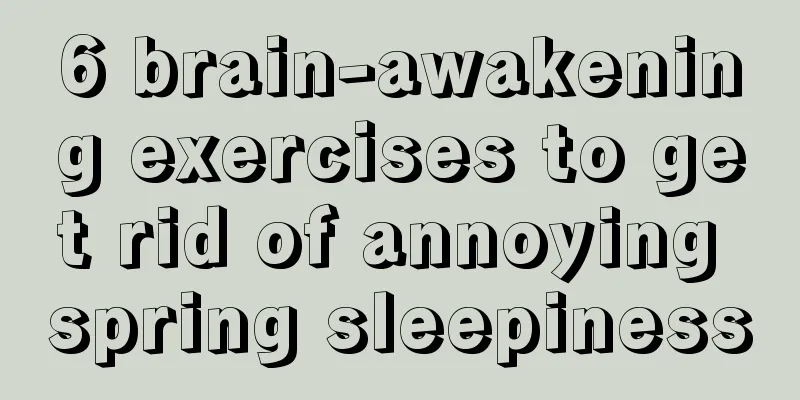The heart is fine, but the heart rate is fast, what's going on?

|
The human heart is like a machine. When the heart is working all the time, life will continue. Once the heart stops, the person's life will come to an end. Some people have a faster heart rate, and some have a slower heart rate. However, a normal person's heart rate is 60 to 80 beats per minute. In a quiet state, it will not exceed 100 beats per minute. If your heart beats too fast, you may have a heart disease and should be treated in time. Throughout a person's life, the heart works non-stop without sleep. It will not stop beating until life ends. Because the heart constantly contracts and relaxes, the blood in the blood vessels can circulate continuously, allowing people to survive. When the heart beats, the apex of the heart hits the chest wall near the left nipple, forming an apex beat. People who are thin and have thin chest walls can clearly see or feel the beating heart with their hands. Under normal circumstances, an adult's heart beats between 60 and 80 times per minute, but if the heart beats more than 100 times per minute in a quiet state, it is "tachycardia", also known as "palpitations". "Tachycardia" is not a disease name, but a symptom. The causes of tachycardia vary greatly, the most common of which is a disease of the heart itself, such as various types of heart disease, myocarditis, heart failure, etc. Systemic diseases such as anemia, fever, acute and chronic infection, shock, hyperthyroidism, and gas poisoning can also cause tachycardia. For normal people, their heart rate may accelerate when they exercise or are emotionally excited, drink strong liquor, strong tea, strong coffee, smoke a lot, or take certain medications. Why don't young people need to be nervous about tachycardia? Because the main and most common cause of tachycardia in young people is due to functional autonomic nervous system disorder, this has been confirmed by more and more clinical cases and cardiologists. Most young men and women with palpitations are very nervous when they see a doctor, but after auscultation and full-body examination of relevant items, it is found that except for a rapid heart rate, other examinations are normal. In addition to feeling anxious, patients often have symptoms of neurasthenia such as dizziness, fatigue, loss of energy, insomnia, and nightmares. Tachycardia is very common among young people. According to clinical statistics, it accounts for 16.8% of all young people's visits to the doctor. It is clinically called "adolescent tachycardia." So, why does the autonomic nervous system become disordered during adolescence? Because adolescence is a transitional period when the body goes from basic maturity to full maturity. During this period, the young person's body and its various important organs, such as the heart, lungs, brain, and genitals, are changing rapidly, and all these changes are controlled by the nervous system and endocrine system. In the nervous system, there is a kind of autonomic nerve whose center is not in the cerebral cortex, but in the hypothalamic center under the cortex. Therefore, it is not controlled by human will. The autonomic nervous system regulates the coordination and balance of the sympathetic nervous system and the vagus nerve to adapt to changes in the external environment, and all the planning and strategy are self-evident. However, the autonomic nervous system function during adolescence is generally unstable and can easily become disordered or dysfunctional. Tachycardia is caused by the coordination disorder between the sympathetic nerves (which accelerate the heartbeat) and the vagus nerves (which inhibit the heartbeat) under the command of the autonomic nervous system, with the sympathetic nerves taking the dominant position. In other words, the occurrence of tachycardia is mainly related to the decrease in vagus nerve tension and the excitement of sympathetic nerves. However, this is only a temporary disorder and does not require special treatment. After puberty, palpitations will heal on their own. |
<<: Why does a slow heart rate lead to high blood pressure
>>: Heart rate after surgery 90
Recommend
How to get a newborn to sleep?
Many mothers may have encountered this situation ...
Low back pain, early symptoms of bone cancer
Low back pain is one of the early symptoms of bon...
What is the reason for difficulty in defecation after thyroid cancer surgery
Constipation after thyroid cancer surgery may be ...
Hazards of aluminum powder
Heavy metals are extremely harmful to the human b...
What are the treatment methods of lung cancer in traditional Chinese medicine? Detailed description of the traditional Chinese medicine treatment methods for lung cancer
Traditional Chinese medicine also has some treatm...
One side of the abdominal muscle is bigger than the other side
Many men hope to have abdominal muscles on their ...
How to tell if you have cervical cancer
You can determine whether you have cervical cance...
What is the reason for back pain while working
If a person maintains a posture for a long time, ...
Are there many people with Helicobacter pylori?
Because Helicobacter pylori is contagious, many p...
What is the highest power of hepatitis C virus
When a person finds any symptoms of hepatitis C i...
How long after cesarean section can you have an abortion? Please pay attention to
Cesarean section is a very mature delivery techno...
Which type of porcelain teeth is better?
We all know how important teeth are to us. Even i...
Who are the suitable people for American ginseng
We all know that American ginseng is a type of gi...
Success rate of artificial insemination
Artificial insemination is very common nowadays. ...
Red rashes all over the body
If you have a lot of red rashes on your body, thi...









